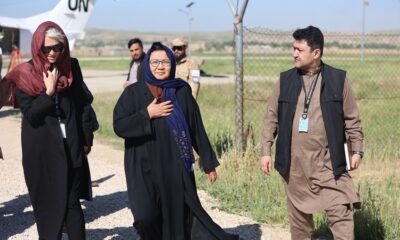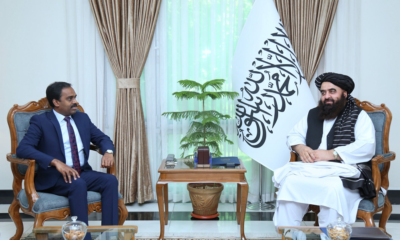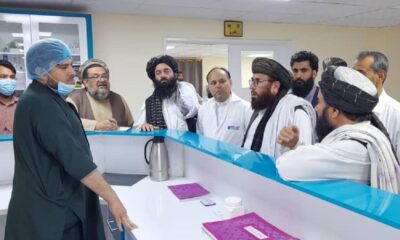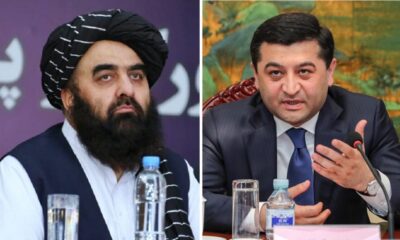Business
HRW urges governments, IEA to reach agreement on banking issues

Afghanistan’s humanitarian crisis cannot be effectively addressed unless the United States and other governments ease restrictions on the country’s banking sector to facilitate legitimate economic activity and humanitarian aid,” Human Rights Watch said in a statement on Thursday.
It said that the US air strike killing the al-Qaeda leader Ayman al-Zawahri should not derail ongoing discussions between the US and Afghanistan to urgently reach an agreement allowing ordinary Afghans to engage in legitimate commercial activity.
“Afghanistan’s intensifying hunger and health crisis is urgent and at its root a banking crisis,” said John Sifton, Asia advocacy director at Human Rights Watch. “Regardless of the Taliban’s (IEA) status or credibility with outside governments, international economic restrictions are still driving the country’s catastrophe and hurting the Afghan people.”
Despite actions by the US and others to license banking transactions with Afghan entities, Afghanistan’s central bank remains unable to access its foreign currency reserves or process or receive most international transactions. As a result, the country continues to suffer from a major liquidity crisis and lack of banknotes, HRW noted.
Businesses, humanitarian groups, and private banks continue to report extensive restrictions on their operational capacities. At the same time, because outside donors have severely cut funding to support Afghanistan health, education, and other essential sectors, millions of Afghans have lost their incomes, according to HRW.
Overall, more than 90 percent of Afghans have been suffering from some form of food insecurity since last August, skipping meals or whole days of eating and engaging in extreme coping mechanisms to pay for food, including sending children to work, HRW said.
“Importers are struggling to pay for goods, humanitarian groups are facing problems with basic operations, and the Afghan diaspora can’t send enough money to their relatives and friends,” Sifton said. “Millions of hungry Afghans are experiencing the abysmal reality of seeing food at the market but being unable to purchase it.”
Business
Afghan businessman to invest up to $12 million in iron ore extraction in Panjshir

An unnamed Afghan businessman is reportedly ready to invest up to $12 million in iron ore mining in Panjshir province, the provincial governor’s spokesman Saifuddin Laton said Sunday.
According to Laton, the businessman has shown interest in investing between $3 and $12 million to mine an area covering 22 square kilometers in Paryan district in Panjshir.
Laton said the contract for this project has been approved by the Economic Directorate of the Prime Minister’s Office of the Islamic Emirate of Afghanistan (IEA).
In addition to extraction, the businessman will also carry out the processing and packaging of the iron ore within the province to create greater added value.
Laton said that in the first phase, the company will launch an exploratory program of the reserves over six months, during which around 500 jobs will be created.
After completing this phase, formal extraction work will begin, he said.
Afghanistan possesses substantial iron ore reserves, estimated at 2.2 billion tonnes, making it a top 10 country for extractable iron.
The largest deposit, Hajigak, is located in Bamiyan province, and contains an estimated 1.7 billion tonnes of high-grade ore.
Business
Afghan deputy agriculture minister leaves for Iran’s international expo
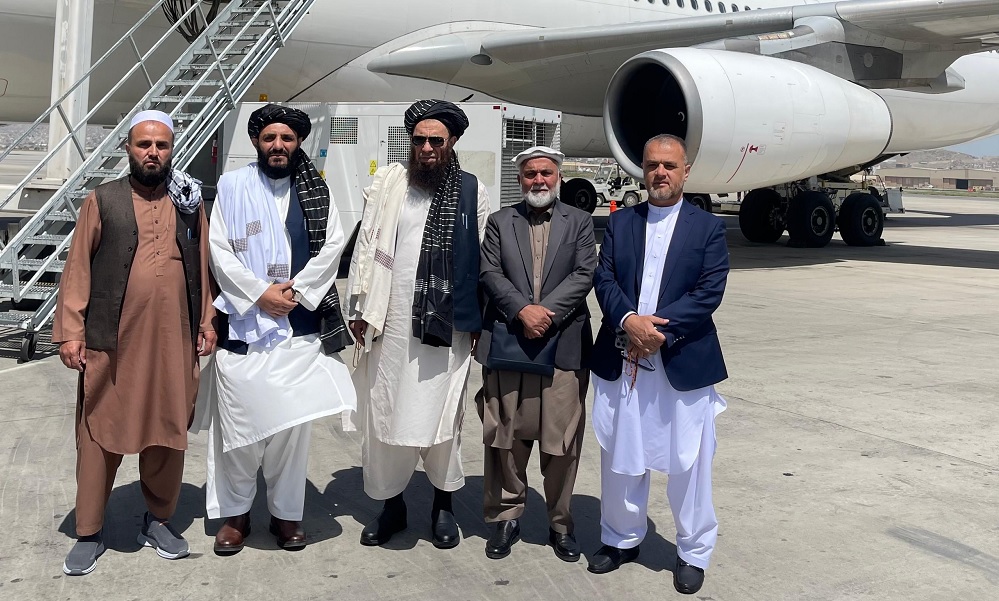
Sadri Azam Osmani, Deputy Minister of Agriculture, Irrigation and Livestock, on Saturday left Kabul to participate in the 7th International Exhibition of Iran’s Export Capabilities in Tehran.
The expo will be held from April 28 to May 2. According to the organizers, between 2,000 and 3,000 foreign traders from around the world are expected to attend.
Osmani expressed hope that this trip will pave the way for the growth of trade and attract more investments to Afghanistan.
Business
Pakistan’s deputy PM discusses Trans-Afghan Railway Line project with Uzbek FM
On Thursday, in a post on X, Pakistan’s Foreign Ministry said Dar hoped that the three countries would soon sign the framework agreement for this important regional connectivity project.
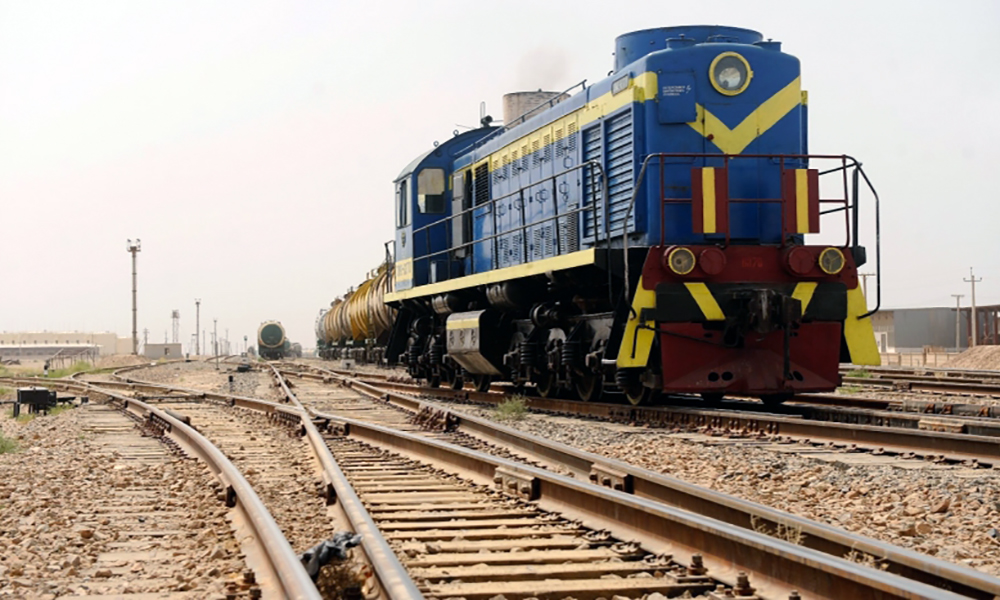
Pakistan’s Deputy Prime Minister and Foreign Minister Ishaq Dar held a telephone conversation with the Foreign Minister of Uzbekistan, Saidov Bakhtiyor Odilovich, on Thursday to discuss the Trans-Afghan Railway Line Project.
This comes after Dar’s recent visit to Kabul, where he held talks with officials on the planned Uzbekistan-Afghanistan-Pakistan Railway Line Project.
The three neighboring countries signed an agreement in February 2021 to construct a 573-kilometer railway line through Afghanistan, connecting landlocked Central Asia to Pakistan seaports, with an estimated cost of $4.8 billion to enhance regional economic connectivity.
On Thursday, in a post on X, Pakistan’s Foreign Ministry said Dar hoped that the three countries would soon sign the framework agreement for this important regional connectivity project.
The two leaders also discussed strengthening bilateral relations, enhancing economic and trade connectivity, promoting people-to-people ties, and exchanged views on current regional and international issues.
-

 Sport4 days ago
Sport4 days agoSri Lanka A defeats Afghanistan A by 4 wickets in Abu Dhabi
-

 Business5 days ago
Business5 days agoAfghanistan’s growth prospects remain uncertain amid global uncertainty: World Bank report
-
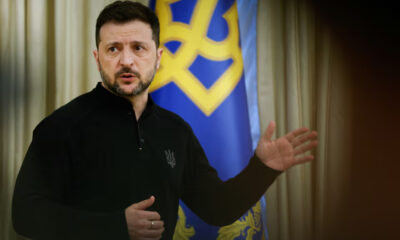
 World5 days ago
World5 days agoUkraine ready to hold talks with Russia once ceasefire in place, Zelenskiy says
-

 Latest News4 days ago
Latest News4 days agoAWCC activates new site in Nangarhar’s Kuz Kunar district
-

 Latest News4 days ago
Latest News4 days agoTarig Ali Bakheet and Japan’s Deputy Foreign Minister discuss Afghanistan’s situation
-

 Climate Change5 days ago
Climate Change5 days agoPowerful earthquake of 6.2 magnitude shakes Istanbul
-

 Business4 days ago
Business4 days agoPakistan’s deputy PM discusses Trans-Afghan Railway Line project with Uzbek FM
-

 Latest News5 days ago
Latest News5 days agoSpecial meeting will be held to launch Afghanistan–Russia joint commission, says Kabulov


